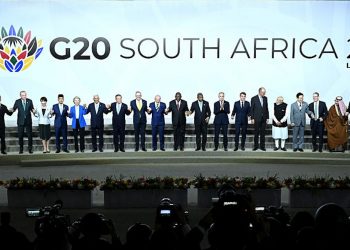Eurobonds, debts owed in a foreign currency, have become a quick and attractive way for African countries to borrow money. They are behind a sharp rise in commercial borrowing as a percentage of total external debt: it has nearly doubled from 27% in 2011 to 52% in 2020. This has increased the debt vulnerability of most African countries.
Recent developments, however, show that most of the bonds have not been structured properly. As a result, African countries are paying way over the odds relative to their sovereign risks.
Based on my bond price modelling expertise, it is my view that there are two major drivers of the mispricing of African government bonds. They are interlinked.
Firstly, a lack of expertise in debt management offices, whose job it is to negotiate the terms of any debt deals and to oversee their execution. This is a topic I explored in a recent article.
Read more:
African countries are bad at issuing bonds, so debt costs more than it should: what needs to change
The second factor, which I address here, is that in many African countries, finance ministers have assumed primary responsibility for Eurobond issuance. They engage directly with investment bankers, legal advisors and credit rating agencies.
In my view they shouldn’t.
Finance ministers should stay away from debt negotiations because they are political appointees. They operate under incentives tied to electoral cycles, not fiscal sustainability. Their short tenures and desire to fund visible projects often conflict with the long-term nature of sovereign debt obligations.
They don’t have the necessary expertise to handle the technical complexity required to get the best possible deal, either.
Simply calling for ministers to step aside would ignore the institutional realities in most African countries. In particular, debt management offices have severe capacity constraints.
Nevertheless, as global financial conditions tighten and African countries seek to refinance maturing Eurobonds or issue new instruments, the risks of politicised borrowing must be minimised. Ministers should spend their energies on ensuring their debt management offices are well staffed with top quality teams. They should then leave it up to these technical staff to prepare and arrange the financing.
This would leave room for ministers to manage any disagreements between technical staff and the banks when necessary. And to close the final deal.
Ministers versus the experts
Eurobond issuance involves advanced financial engineering – pricing models, investor engagement, covenant structuring and legal compliance across jurisdictions. It takes a deep understanding of capital markets.
When debt management offices are operating at their best, they are filled with people who have this knowledge. They have a combination of financial market and public policy skills, including debt portfolio management, risk analysis and debt transaction processing.
In discussions with debt managers at the African Sovereign Debt Conference it’s become clear to me that debt managers are sidelined in the international bond issuance negotiations. They are also sidelined in the execution process, except for administrative support.
What happens instead is that finance ministers are usually key contacts of the investment bankers. By approaching a minister directly, investment bankers get to close their mandates faster.
But this minimises due diligence and bypasses internal safeguards. Ministers may not pay attention to complex legal clauses under foreign jurisdictions, details of investor negotiations and fee structures. They may accept unfavourable terms, ignore sustainability assessments and obscure fiscal vulnerabilities in pursuit of political wins and quick disbursements.
For example, in 2018, Ghana’s then finance minister was internationally lauded for financial stewardship. Ghana was the first African issuer of a longest tenure and a zero-coupon bond. A year later, the country defaulted, suggesting the bond terms weren’t great for the country. The minister nevertheless received several awards as the best and most prudent in Africa.
There is also the issue of conflicts of interest. When the same actor – in this case the finance minister – proposes, negotiates and approves a debt instrument, the system lacks accountability.
In many African countries, parliaments, audit institutions and civil society have limited understanding about the technical details of bond agreements. Ministers can easily sideline procurement rules and transparency mechanisms, resulting in non-competitive contracts and opaque fees paid to underwriters and advisors.
Investment bankers prefer this arrangement as it works in their favour.
Reforms that are needed
Before finance ministers can hand over control, debt management offices must be equipped. This requires targeted reforms, including:
-
Capacity building through strategic partnerships: African debt management offices should work with international issuing syndicates and development partners to gain first-hand exposure to structuring, pricing and marketing global bonds.
-
Human capital reforms: Governments must attract and retain highly skilled debt managers by offering competitive pay, professional development opportunities and protection from political interference.
-
Debt management offices must be staffed by dedicated quantitative analysts. They must also be equipped to use real-time market intelligence systems and formal investor relations programmes.
-
Gradual delegation: Authority can be shifted, starting with less complex debt instruments.
The role of the finance minister must evolve. Ministers should provide strategic leadership: approving borrowing strategies, ensuring alignment with macroeconomic goals, and engaging parliament and the public.
Their function should shift from operational to institutional oversight and accountability.
Structural reforms must embed the capacity, autonomy and transparency required for debt management offices to lead effectively.
In South Africa, for example, the assets and liabilities management division of the National Treasury department manages government’s annual funding programme.
Professionalising the debt issuance process is not just about avoiding technical mistakes. It’s also about creating resilient institutions that can withstand political turnover. That fosters credibility and long-term access to capital.
Ministers should remain accountable to the public, and debt management offices must do their work based on technical merit.
Misheck Mutize is affiliated with the African Union – African Peer Review Mechanism as a Lead Expert on credit ratings
















